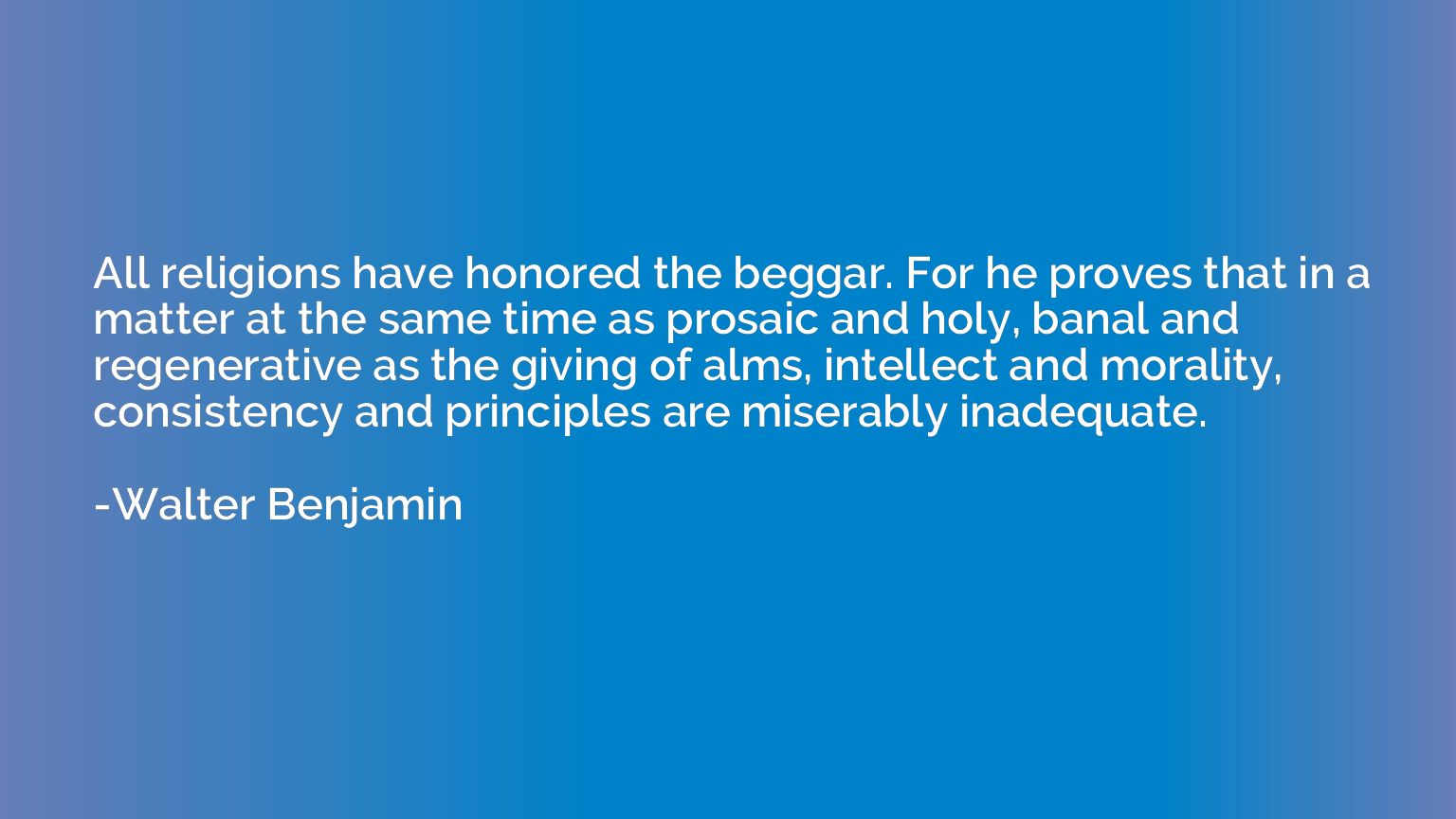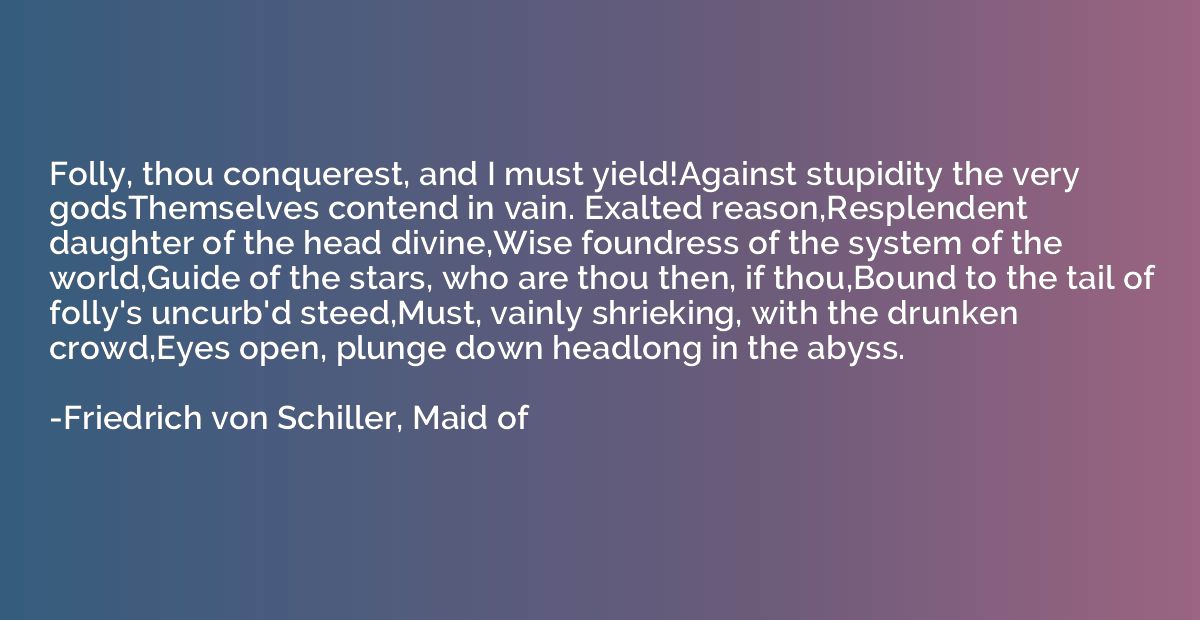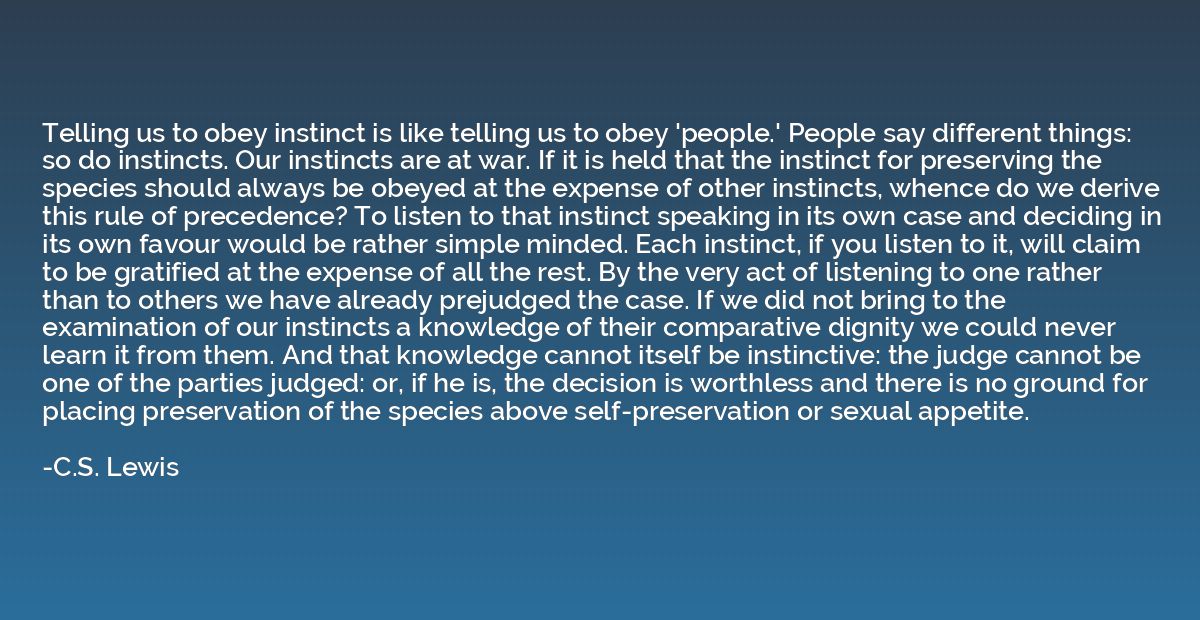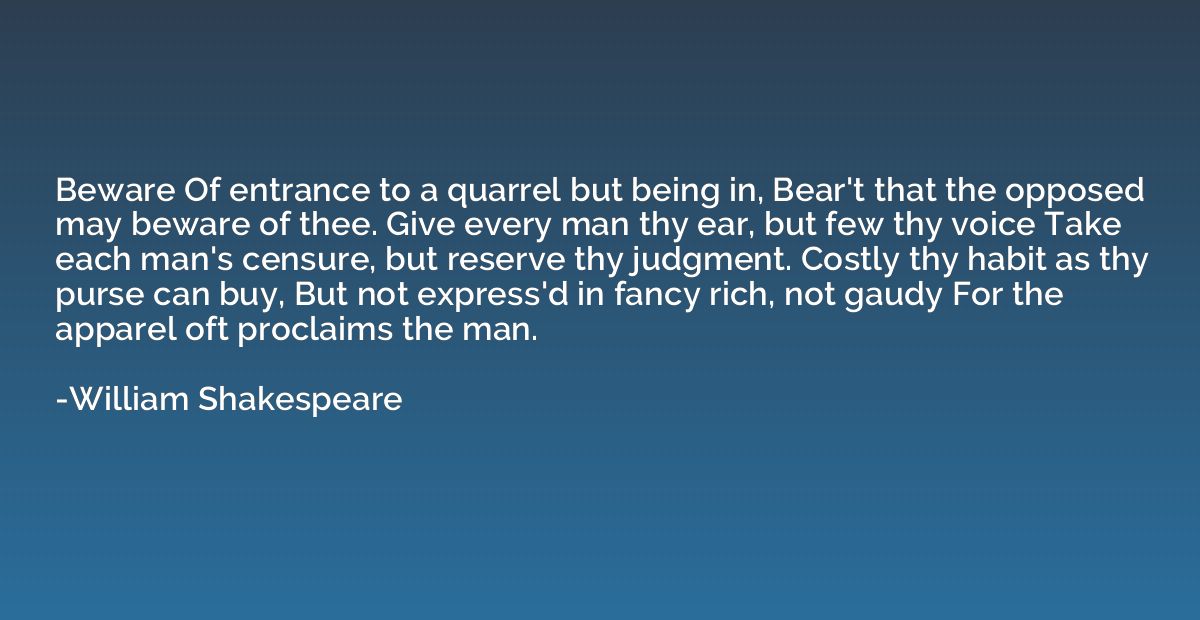Quote by Walter Benjamin
All religions have honored the beggar. For he proves that in a matter at the same time as prosaic and holy, banal and regenerative as the giving of alms, intellect and morality, consistency and principles are miserably inadequate.

Summary
This quote suggests that the act of giving alms to a beggar is a universal concept in all religions. It highlights how this simple act, which may seem ordinary or mundane, holds deep spiritual significance. The quote challenges the idea that intellect, moral values, consistency, and principles alone are enough to understand the true importance of giving. It implies that there is a profound transformative power in this act of charity that transcends any intellectual or moral framework.














